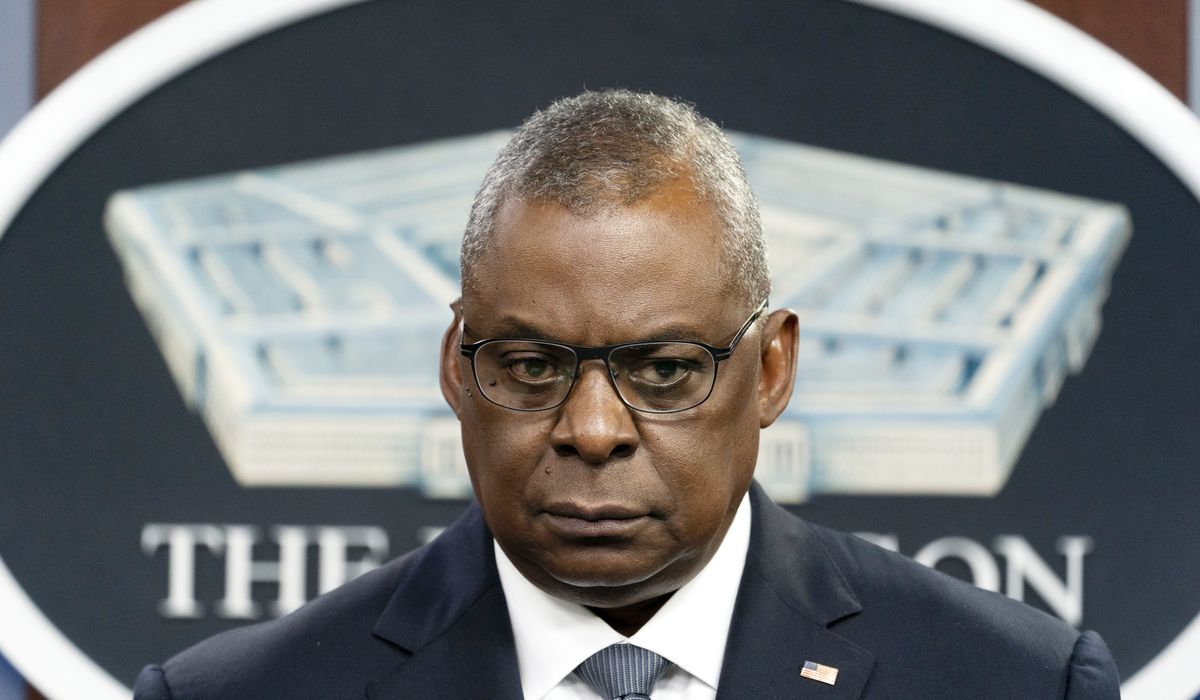

Defense Secretary Lloyd Austin vowed to remain tough on Iran’s nuclear ambitions even as the Biden administration struggles to revive a nuclear deal to lift economic sanctions if Tehran limits its uranium enrichment program.
Mr. Austin made the comments over the weekend in Bahrain at the annual Manama Dialogue, which brings together dozens of world leaders to the island kingdom off the coast of Saudi Arabia to discuss regional security issues. He sought to reassure regional leaders concerned about the U.S.’ abrupt withdrawal from Afghanistan and its strategic shift to the Indo-Pacific region.
“The United States remains committed to preventing Iran from gaining a nuclear weapon, and we remain committed to a diplomatic outcome of the nuclear issue,” he said. “But if Iran isn’t willing to engage seriously, then we will look at all the options necessary to keep the United States secure.”
<!– Temp removal of in article reco
End comment –>
The U.S. team will return to the Joint Comprehensive Plan of Action (JCPOA) talks in Vienna and negotiate in good faith, he said. But Mr. Austin added that Iran’s actions in recent months haven’t been encouraging.
“Iran’s nuclear activities are bringing us closer to the point at which returning to the JCPOA won’t recapture its benefits,” the defense secretary said.
Former President Trump pulled the U.S. out of the JCPOA in 2018, calling it a “one-sided deal” that failed to curtail Iran’s missile program and influence in the region. Tehran used that as a pretext to ramp up its uranium enrichment program, although some analysts said it had never stopped.
Since then, U.S. officials have accused Iran of being behind a number of incidents that have struck the wider Middle East, such as drone and mine attacks targeting ships transiting through the Persian Gulf region.
“Iran presents us all with serious security challenges that go beyond its nuclear program. Iran stokes tensions in this region and beyond, and that undermines peace and stability for us all,” Mr. Austin said.
Tehran hit back at the U.S. defense chief Monday, with a top government spokesman telling reporters that Mr. Austin‘s real purpose in visiting the region was not to strengthen alliances but to help out U.S. defense contractors.
Government spokesman Saeed Khatibzadeh dismissed what he called Mr. Austin‘s anti-Iran rhetoric and warned countries of the region not to be taken in by U.S. promises of engagement.
“I believe that Americans are sending expensive bills to certain regional countries with their comments,” the spokesman said, according to an account by the state-linked Tasnim News Agency.
“Those are sentences and words preceding a bill, otherwise they are worth nothing,” he added.”The United States is probably seeking to sell more arms.”
The defense secretary also addressed Saudi Arabia‘s operations since 2015 against Iran-backed Houthi rebels in Yemen. The Houthis launched drone and ballistic missile attacks against the kingdom in retaliation for Saudi Arabia’s aerial bombing campaign.
While the Biden administration has cut off support for the Saudis’ offensive operations in Yemen, Mr. Austin boasted that U.S. backing allows them to “significantly enhance” their ability to defend themselves from attacks.
“Saudi ground and air forces are now defeating nearly 90% of [unmanned aerial vehicles] and missiles fired from Yemen, and we’ll work with them until it’s 100%,” he said. “America’s commitment to helping our friends defend their sovereign space is unwavering.”
